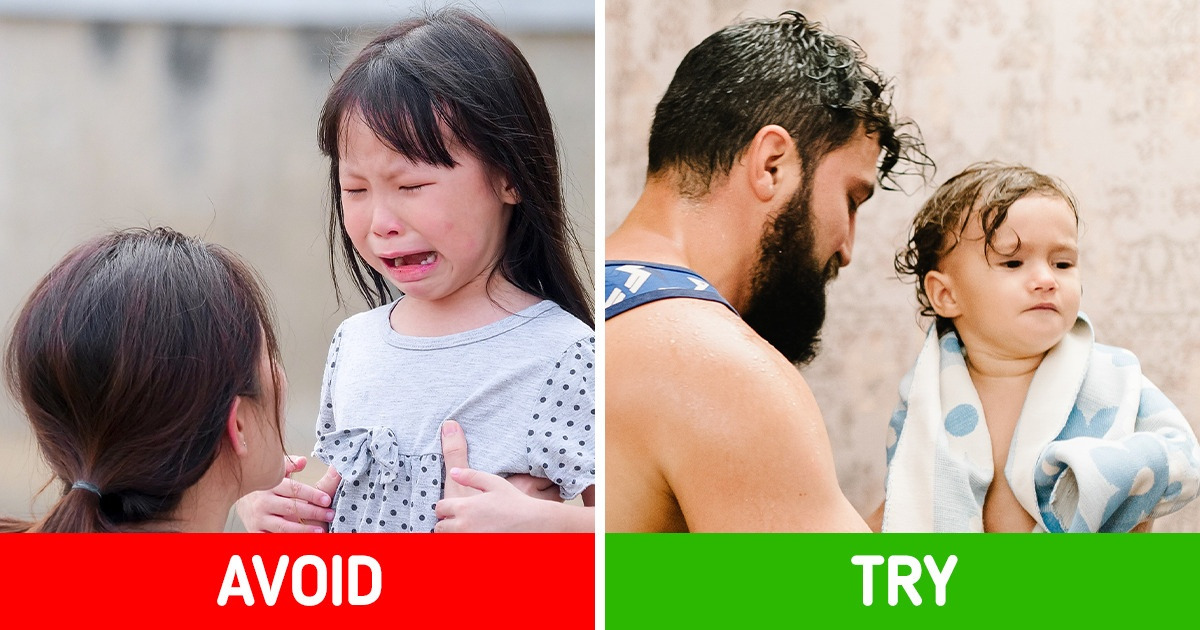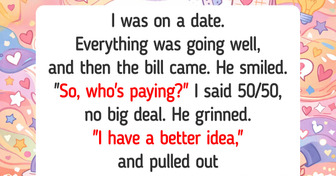17 Shopping Fails People Had to Deal With


There are several mistakes that parents can make when reprimanding their children, and one of them is the timing in which it’s done. According to experts, there’s a perfect moment and environment for having tough conversations with your kid, and it’s during their bath time.
Bright Side summarized important points that explain how shower time can be used beyond washing and cleaning, and we’re also throwing in some bonus tips on how to make baths more magical for your kids.
One mom wrote about her experience when her 4-year-old tried to flee from a playground. She caught up with him right away, but she paused and reflected if it was a good time to call him out since tensions were high, and she was still in her “fight or flight” mode.
Child experts would say that disciplining a child while angry is a big “no-no” because parents are more likely to shout or say something they don’t mean. The best option is to put an immediate stop to the bad behavior by saying that what they did was wrong and postponing the longer discussion for when heads are cooler and the surroundings are calmer, like in the bath.
As one specialist explained, taking a bath involves just one activity, and there are no TVs or iPads to divide the child’s attention. This is the ideal atmosphere for kids ages 3 and above, especially when the goal is to have a focused conversation with them. Just don’t let too much time pass between the incident and the “bath talk.”
In the middle of water splashes, bubbles, and toys, parents can segue back into the incident by asking the kid if they remember what happened. Then follow it up with, “I’d like to talk a little more about that,” and continue the dialogue.
Splash time is a nurturing environment that allows kids to immerse in touch, language, and play. The feeling of water on their skin, plus soothing scents, can help them de-stress. And their parents’ touch can also slow down their heart rate and blood pressure, which makes them relax. This tranquil state will allow them to pay better attention to what their parents are saying.
Part of creating a safe space is giving your toddler a chance to explain and share their thoughts. It’s important to ask them what they were trying to do or what they were feeling at that moment.
Parents can wrap up the conversation by validating their child’s feelings and reminding them not to repeat that kind of behavior. For example, moms and dads can say, “Now I understand why you ran away, but you still need to remember that you can’t do that.”
Experts warn about overusing bath time to process emotions. To avoid having the child develop a “fear” of going into the shower because of the constant reprimanding, it would be wise to mix things up. According to an expert, one alternative option could be talking while sitting on a bench and having snacks.
Needs vary for each child as well, so parents should assess if the bathroom is indeed the best place for disciplining them. For example, a kid who hates baths most likely won’t be calm in that space, while sensory-seekers listen better while they are doodling. Parents should always check which environment works best for their little ones.
Do you find bath time with your child relaxing? Do you agree with this disciplining method, and are you willing to try it?











